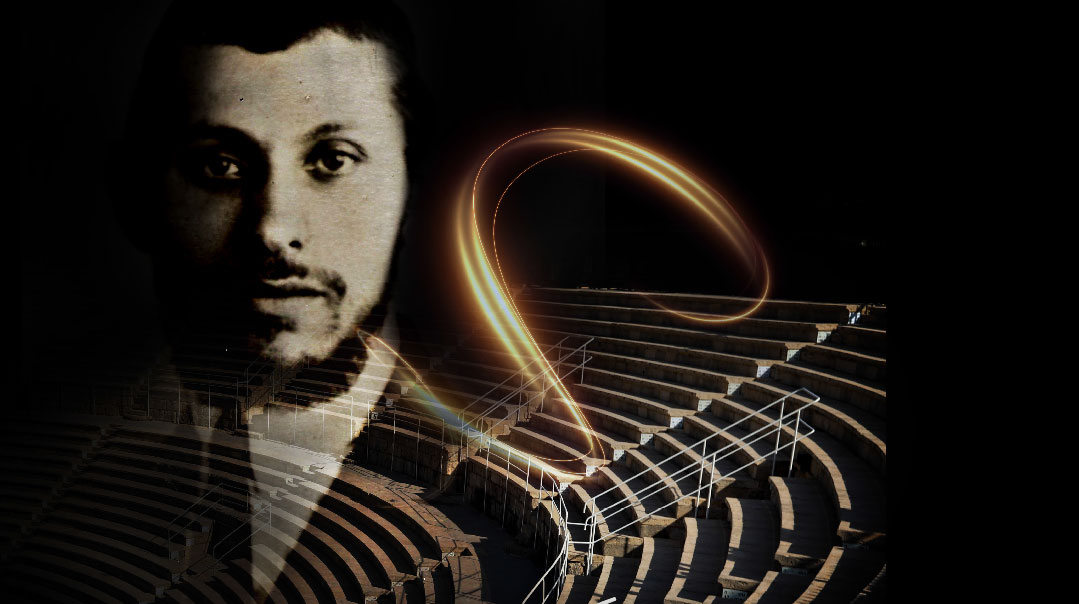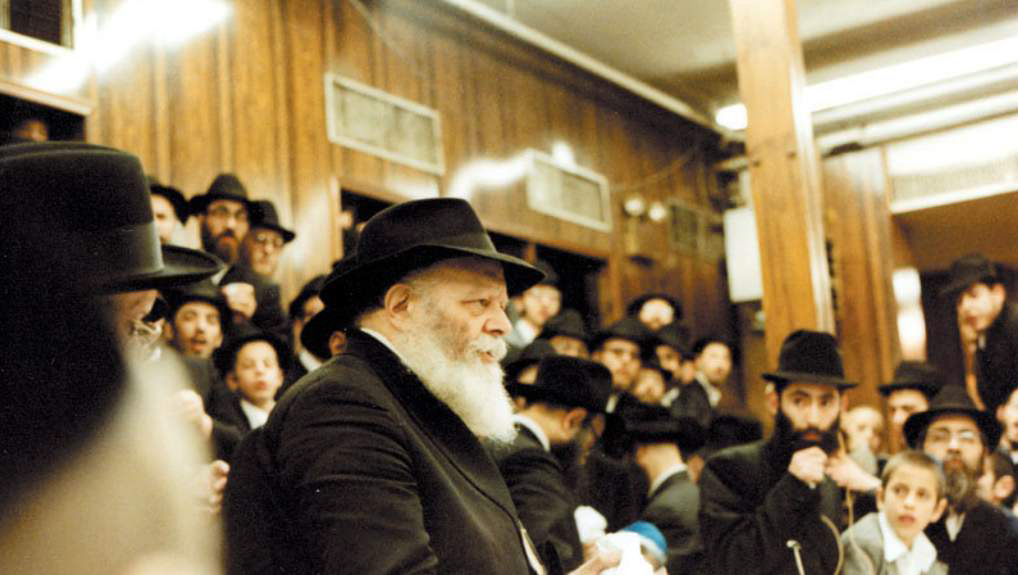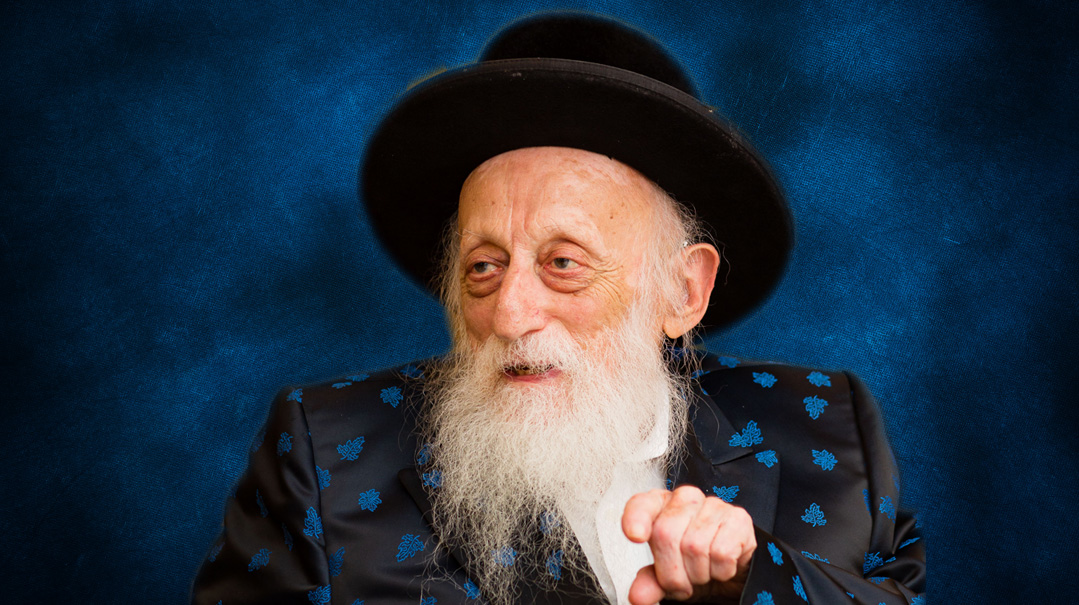The mighty & the weak

"Bayamim haheim, bazeman hazeh; in those days, in this time.”

Caesarea, 1 BCE
T
he ancient harbor of Caesarea rose from the depths and straddled the open sea. Vast stone piers with storage vaults, promenades, a temple, and even an amphitheater — it was the first engineering feat of its kind known to man.
As I tour the sandy site on a hot summer’s afternoon, brine tickles my senses and sea air whips at my neck. Seagulls preen their feathers along the jutting walls. I close my eyes and the uneven cobblestone harbor fills with scenes from the past: lazy donkeys flicking their tails while their masters trade loudly with the crowds, foreign spices, bales of silk, turbaned merchants counting amphorae of wine before seeing them laden onto the galleys.
Ships had harbored at Caesarea for centuries. But one man was responsible for the harbor’s rebirth, for turning this sleepy seaside town into a bustling commercial hub. Herod.
An Edomite slave who served the last remaining links to the Hasmonean dynasty, Herod craved recognition, power, and wealth, stopping at nothing to gain his desires. He murdered his masters but spared their daughter so that he could make a legitimate claim to the throne through marriage.
Here was a man who’d brook no opposition. Look around at the impressive remains of the wharf today, walk through the mammoth underground vaults, and you’ll gain a sense of the spirit of steel that led to this engineering marvel. If the weight of the mighty ocean could not withstand Herod’s will, what could an orphaned princess do to foil his plans?
The Gemara in Bava Basra recounts her tragic end. When she realized his intentions, the maiden climbed to the rooftop and loudly proclaimed: “Should anyone tell you they belong to the House of Hasmonean, know that they are but a slave. I am the last true survivor, and I am now hurling myself off this roof.”
His desires thwarted, Herod had the girl embalmed in honey; he maintained the macabre image of a posthumous marriage for seven years. But he didn’t stop there. Angry at the Torah Sages who upheld the view that converts were not halachically fit to rule, Herod had them slain.
Baba Ben Buta, however, known for his wisdom, was kept alive so that Herod could avail himself of the Sage’s counsel. Still, Herod’s insecurities gave him no rest. Concerned that the Sage might foment rebellion against him, he commanded his henchmen to gouge out Baba Ben Buta’s eyes before entering his room, incognito.
“So, this is what that wicked slave does….” Herod began, hoping to elicit an angry retort that would confirm his deepest suspicions.
“What should I do?” was the Tanna’s measured response.
“Curse the man!”
“It is written that even in one’s thoughts one shouldn’t curse a king.”
“He isn’t a king — he’s a slave!”
“One shouldn’t curse a wealthy man either, nor a nobleman.”
“But he doesn’t even act like one of your people!” said Herod, trying desperately to trip up the Sage.
No matter what provocation the Edomite provided, Baba Ben Buta would not speak subversively.
“Had I known the Sages were so discreet,” Herod finally admitted, “I wouldn’t have put them to death.” Contrite, he revealed his identity and asked how to atone for his deeds.
“Since you’ve extinguished the light of the world [i.e., the Torah Sages],” Ben Buta replied, “tend to the holy Temple, which is also the light of the world.”
Great Ormond Street Hospital, London, 1970s
Rising from his seat, the portly ophthalmologist shook his head.
“There’s all this scarring on your retinas, which is leading to your loss of vision.” Puzzlement crept into his voice. “What’s it from?”
Reb Moishe Rosenberg, my great-grandfather, lowered his chin. “The Gestapo. It’s from before the war. They put me in prison and beat me up. They wanted names.” He crossed his arms and leaned forward, a small smile on his lips. “They didn’t get any.”
At 80-something, Zeide Moishe was no stranger to resilience. Orphaned before his bar mitzvah, without a home in Warsaw to call his own, he’d often fall sleep on a beis medrash bench where, if he didn’t have supper, he could always count on a blatt Gemara for warmth.
In later years, as a talmid in the Gerrer yeshivah, and even when he worked as a shochet to provide for his family, the singsong tune of his learning was never far from his lips, as he committed entire masechtos to memory.
When I was young, we lived for a short while on the top floor of Zeide Moishe’s two-story home in London. I was too shy, and the age gap between us too great, for any meaningful conversation to take place. But the portrait of him that I carry in my mind is as vivid as ever. There he was: Zeide Moishe at the table. Alone.
But that was just an illusion. Zeide was never alone. In the upper reaches of his mind, he was surrounded by the beloved masechtos of his youth; masechtos he had toiled over through better and worse; befriending, embracing, devouring them all, until they were part of the very fabric of his soul.
When Yitzy, the friendly neighbor’s teenage son came over to study with him — as a favor, you see — he went home with an incredulity that stayed with him for decades. I know, because he is now an esteemed lamdan in his own right and married to my cousin. Young Yitzy would learn out loud, eagerly awaiting Zeide’s signal. And just as Yitzy knew that Zeide would be downing Tetley tea with plain digestives, he could count on Zeide Moishe to raise a finger at some point, and ask for a sefer from one of the floor-to-ceiling bookshelves that lined the study.
“Check the second column near the door, fifth shelf up, third volume from the left — you’ll find Bava Metzia (or this sefer, or that one).”
Zeide never erred. “Daf 26, amud alef, second line down…” — Young Yitzy’s eyes followed the trail right up to the red-inked circle, drawn by my Zeide when he could still see. Invariably, it marked a profound peirush. Something he wanted to recall. And that’s the thing. He did.
In the passage of time, the details have blurred. I no longer remember the details of Zeide’s medical treatment, if there was anything the doctors tried or could have done. But that’s irrelevant.
What really matters is that two millennia after Herod tried to extinguish the light of our nation, a man with no sight still had the power to light up the world.
(Originally featured in Family First, Issue 673)
Oops! We could not locate your form.












